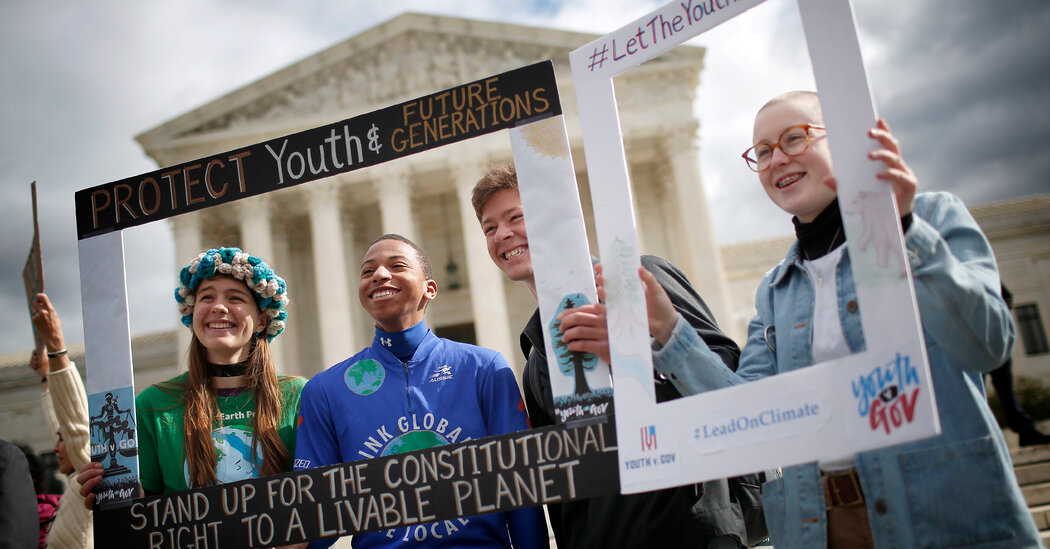The Supreme Court declined to hear an appeal in the long-running case, known as Juliana, which helped spawn legal strategies widely adapted to other lawsuits.
The Supreme Court on Monday declined to hear an appeal in a landmark climate case brought by 21 young people against the federal government, ending its 10-year journey through the courts.
But the case provided a blueprint for numerous other climate-related lawsuits that have had greater success.
Juliana v. United States argued that the government had violated the constitutional rights of the plaintiffs with policies that encouraged the use of fossil fuels. But it was dismissed by the United States Court of Appeals for the Ninth Circuit, where the judges ruled that courts were not the right venue to address climate change.
“Rather, the plaintiffs’ impressive case for redress must be presented to the political branches of government,” Judge Andrew D. Hurwitz wrote in the 2020 opinion.
Our Children’s Trust, the Eugene, Ore., nonprofit law firm that represents the plaintiffs, made its final legal gambit in the case last year, when it asked the Supreme Court to vacate the appeals-court ruling and allow Juliana to proceed to trial in a lower court. That petition was denied on Monday.
Some observers had also considered it risky to ask the Supreme Court to consider the appeal, out of concern that a conservative court might use the case to jettison longstanding environmental protections.
